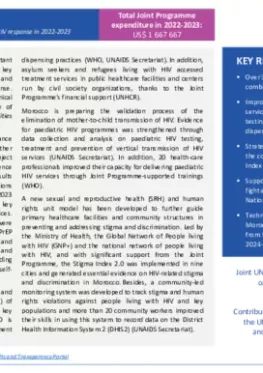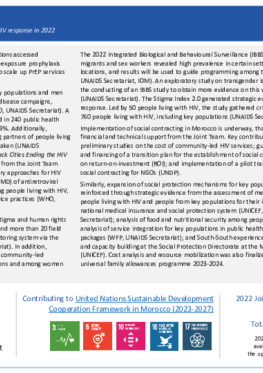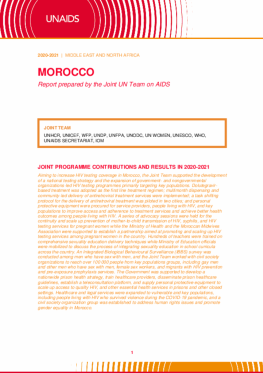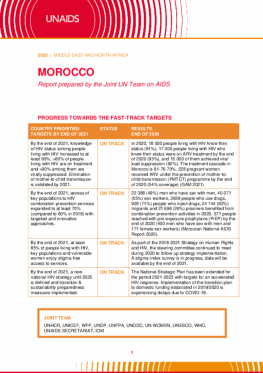|
Morocco
The Joint Programme in Morocco made important contributions in scaling up access to HIV services among key populations, strengthening coordination with partners and mobilizing external resources for the national response. Moreover, following sustained advocacy and technical support provided by the Joint Programme, the city of Essaouira joined the Paris Declaration on Fast-Track Cities Ending the HIV Epidemic in 2022 (UNAIDS Secretariat).
The 2022 Integrated Biological and Behavioural Surveillance (IBBS) survey among female sex workers, gay men and other men who have sex with men, migrants, people who inject drugs and transgender persons revealed high HIV prevalence in certain settings and geographical locations, and results were used to guide programming among key populations (UNHCR, UNAIDS Secretariat, IOM). During the 2022-2023 biennium, more than 300 0000 people, mainly from key populations, accessed combination HIV prevention services. Existing pre-exposure prophylaxis (PrEP) services were evaluated, and new guidelines finalized to scale up PrEP services across the country. In addition, HIV testing and counselling services expanded among key populations and men through innovative and diversified strategies, including multi-diseases campaigns, community-based testing, self-testing and index testing (WHO, UNAIDS Secretariat).
Differentiated service delivery approaches for HIV testing and treatment services and multimonth dispensing (MMD) of antiretroviral treatment benefitted vulnerable and key populations, including people living with HIV—MMD is currently available in 96% of antiretroviral treatment dispensing practices (WHO, UNAIDS Secretariat). In addition, asylum seekers and refugees living with HIV accessed treatment services in public healthcare facilities and centers run by civil society organizations, thanks to the Joint Programme’s financial support (UNHCR).





